
8 minute read
TALENT German Golub
German Golub
NEW WAVE OF ESTONIAN FILM
German Golub (28) won a student film Oscar for his graduation film and was elected to represent Estonia in Future Frames: Generation NEXT of the European Cinema 2021 programme, presented as part of Karlovy Vary International Film Festival.
By Maria Ulfsak Photo by Virge Viertek
There, ten outstanding film students and graduates from schools throughout Europe take part in a threeday tailormade programme to further and ease their way into the international film scene with the support of extensive press coverage. Apart from presenting and discussing their films with the KVIFF audience, the young professionals also take part in an exclusive masterclass with an internationally renowned filmmaker, and have industry meetings with festival programmers, world sales agents, producers, film funders, and other important industry members.
German Golub, a graduate of Baltic Film, Media and Arts School (BFM) in Tallinn, won a Student Academy Award (and a gold medal in the International Narrative film category) with his 34minute short film My Dear Corpses. It gave him an additional opportunity to compete for a short film Oscar, but the film didn’t make it to the shortlist. My Dear Corpses is practically a nobudget film the only expense, in the director’s words, was “a lot of blood, sweat and tears, plus 3300 euros”.
The events of this tragicomedy are based on the director’s own life. The protagonist is a young man Erki (RuubenJoosua Palu), who has suddenly become homeless, and has to start taking care of his elderly and lonely mother (Vilma Luik). He has no other options but to accept the first job offered – as a corpse carrier. Erki’s new colleague Ott, a boozy cadaver enthusiast with a twisted sense of humour, is a seasoned veteran at this job.
German, how has the success of My Dear Corpses and the Student Oscar win influenced your life? Have any new doors opened, or new offers arrived on the table? The aftereffects of My Dear Corpses start gradually to appear only now. The “first wave” of the win consisted of an unusually high level of attention and, of course, a massive workload. I basically had to take a crash course in the mechanics of the global film industry, how to campaign for a short film academy award, who to speak to, and how, etc.
It was (and still is) a proper studying session, fortunately there are a lot of people in Estonia who helped me, and for that I am very grateful.
I also participated in the Golden Mentorship pro
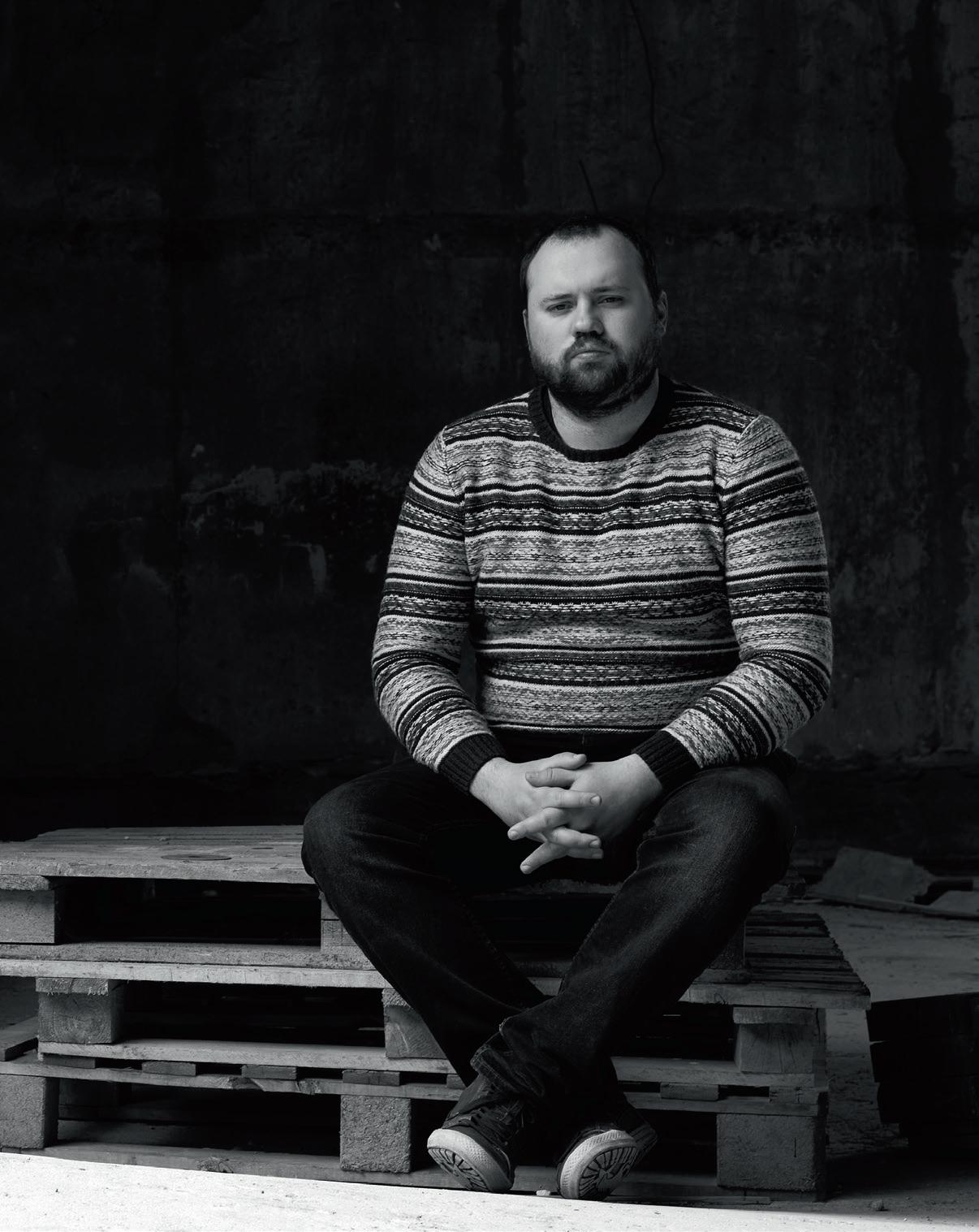
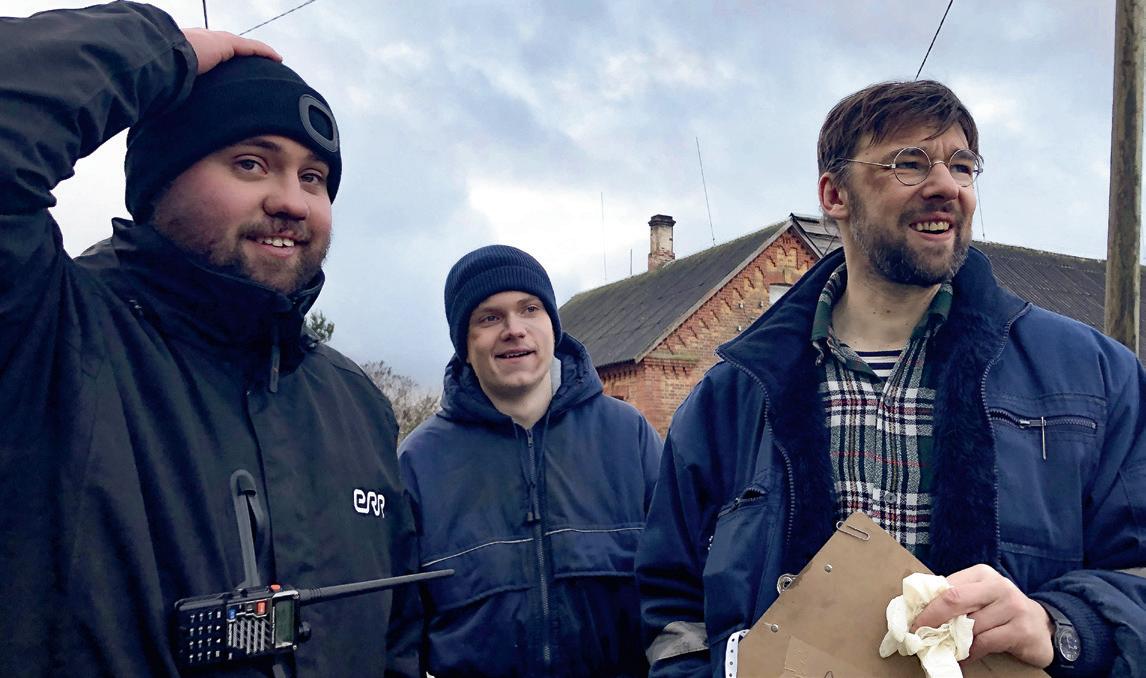
gram founded by the American Film Academy, where every winner was given an opportunity to have an academy member as a mentor, sharing his or her work, and life experience, and introducing the workings of the cinema world.
My mentor was Waldemar Kalinowski, a producer and a production designer who has worked on projects like Powder, Crazy Heart and The Fast and The Furious.
There have been offers too, but it all takes time and deliberation. Right now, my main goal is not to stop, and keep working – not the easiest task during the pandemic.
What do you think, why has My Dear Corpses done so well, and why does it touch the audience? I don’t think it’s possible to say exactly why it has done so well. There is no formula for “success”. Objectively speaking, I think that there are several factors that influence the success of a film, and its connectivity with the audiences.
Starting from the fact that it is a very simple story that has clearly been made with the viewer’s interests in mind. During development, we made an agreement with the crew that we will concentrate on the story and use the most simple means possible to tell it, but remain true to the sincere story and the characters. It certainly helped, and I think it eliminated a huge common problem today – in my opinion, people are concentrating too much on the aesthetics of the picture, instead of the meaning, when telling the story visually.
The other reason was the origin country, Estonia. We often hear that our country is small, and the opportunities are scarce, but it turned out to be strength, not a weakness. As the only film from Estonia, we were received as something new and exotic. It is interesting for a foreign viewer to discover, how a little European country from the Eastern Block looks, lives and thinks.
And the last reason would unfortunately be the complicated global situation with the pandemic and all. The film speaks about death and life, and the Covid19 crisis reminded people that we are not immortal, and that death is a natural part of life.
Dealing with this topic in a tragicomic manner, sincerely and directly, gave us a way to approach the theme from a slightly different angle than usual.
Director German Golub (on the left) working with actors RuubenJoosua Palu and Erki Laur on the set of My Dear Corpses.
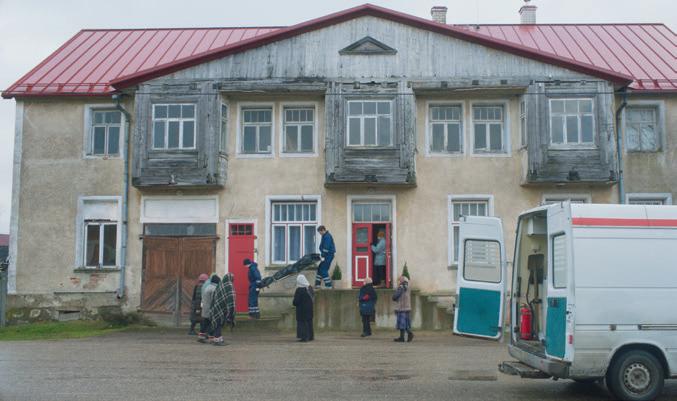
What are your expectations regarding the Future Frames programme in Karlovy Vary? I have not participated in such programmes before, and the whole thing is very intriguing to me. Fortunately, we can again leave the internet behind for a while and visit the festivals personally – it is so important with events like this. For example, personally taking part in a workshop is much more productive and effective than a video call, because it is conducted in a special environment with a specific atmosphere.
Naturally, the social aspect is crucial as well. A big part of the film industry is reliant on that, because it can be quite hard to figure the other person out through the internet. Young authors especially need to see and feel the reactions of a live audience to their films. Reactions give a good basis for further analysis too, and offer a chance to learn.
I believe that all in all it represents a good opportunity to educate oneself, and to train with top European professionals.
What do you regard as most important in filmmaking – a good idea, perfect execution, good acting, psychological nuance? What is the central axis for you to start building the film around? For me, film is not just art, it’s an act of empathy driven by relationships from both sides of the screen. The most important aspects are the character and the journey they have to take. It all has to ring true. You naturally expect to have a good idea, technical capability, good acting, psychology and the rest, but it reminds me how I thought in my childhood that the characters on the TVscreen are actually real people behind a big glass pane. A bit later on I understood of course that this is not the case, and everything is conditional, but after finishing my first school film, I came back to that very same idea – the characters on the screen are indeed real people with a history, habits, emotions, thoughts, and needs. And it is our goal as filmmakers to record the character and its journey as accurately as we can so that the viewer could step into the shoes of the character, even just for a moment. When we achieve that goal, the viewer understands the character and cares enough to empathize with them. In short, it is important for me to capture the humanity of the character – regardless of who he/she is – and the situation that the viewer could identify with.
German Golub’s My Dear Corpses has been BFM’s most successful student film ever. The film has participated at many festivals and won the gold medal at Student Academy Awards 2020 in International Narrative category. You are also working on a feature film about Erika Salumäe, Estonian two-time Olympic winner in track bicycle racing, whose life has been relatively dramatic, but who means a lot to Estonians. Please tell us more, what kind of a project is it and how far along are you? Our Erika is a biographical sports drama about an Olympic winner Erika Salumäe. Currently, the project is gradually moving from the scriptwriting phase to development. We are streamlining the script at the moment, specifying different details, and will be moving along the development schedule.
A lot of work needs to be done still, but I can say that it will be a story about a human being, not a hero. Every nation needs its heroes, but no nation ever thinks, what does the hero need? Erika’s journey is significant to the Estonian nation. The film is inspired by her story and shows how she uses her achievements in sports to find sympathy and understanding missing in her life, and to rid herself of past sufferings. She uses her physical and emotional traumas as stimulus to achieve extraordinary results in sports, track bicycle racing.
As a director and one of the scriptwriters, I would love to go back in time and give the audience a chance to step into the shoes of an Olympic champion, and understand this way, who is Erika Salumäe as a human being.
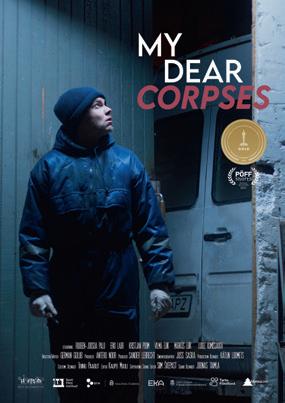

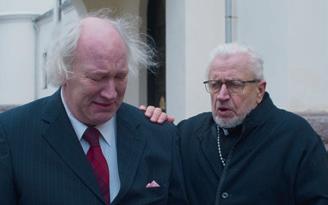
Do you have other films or ideas in development? What does the future bring and what are your plans in the near future? Ideas, yes. I have developed some of them, sifting them to filter out the better bits. I will work on them more seriously when the time comes but a shortterm agenda is simple – to learn and work as much as possible. EF










